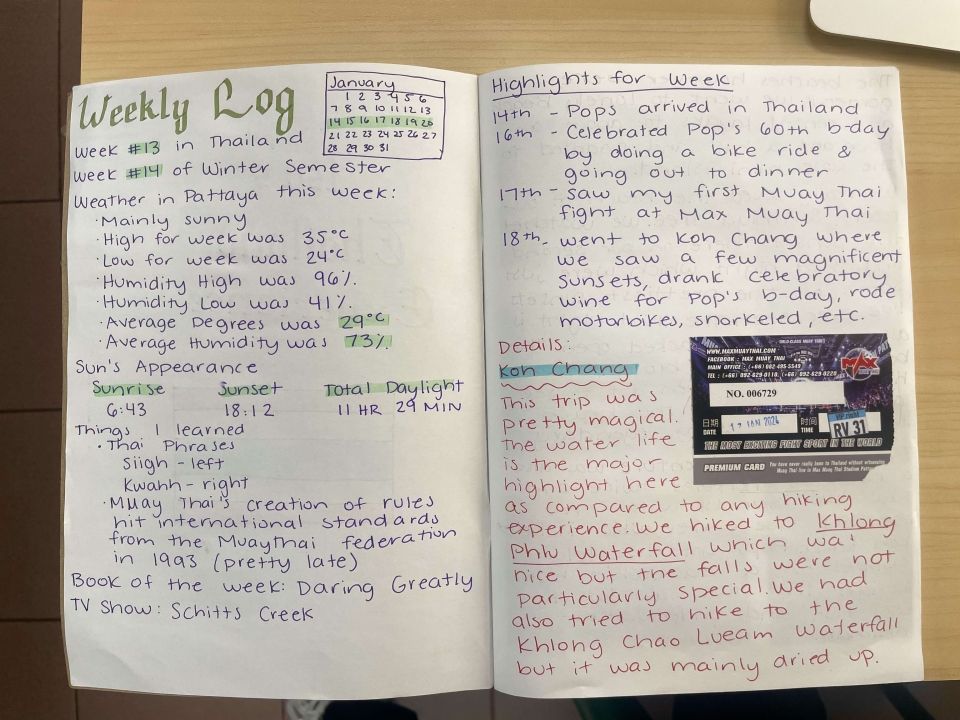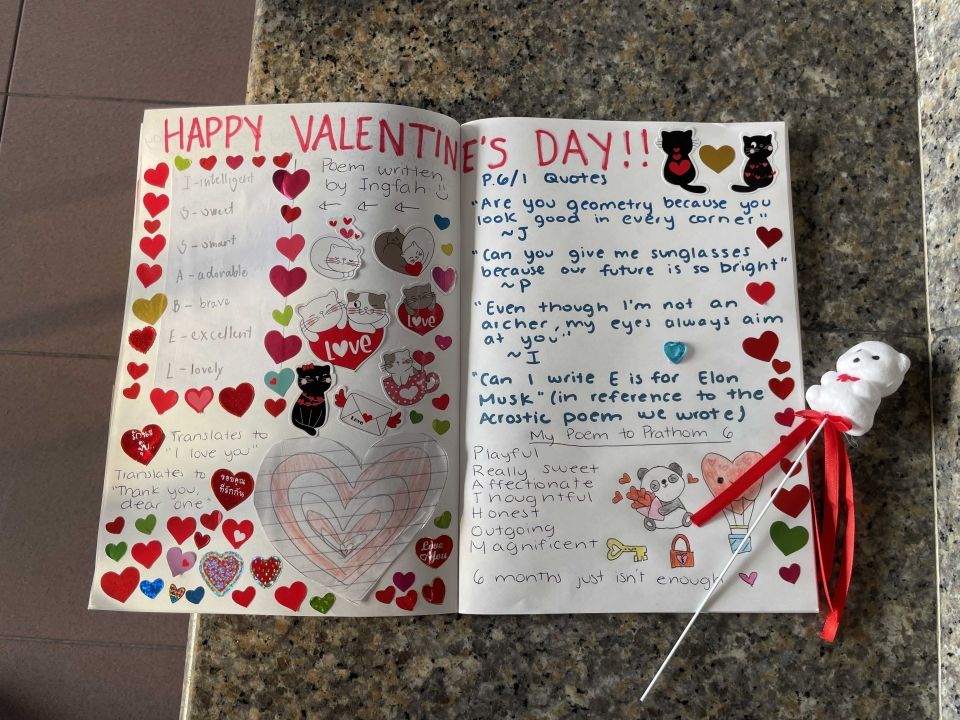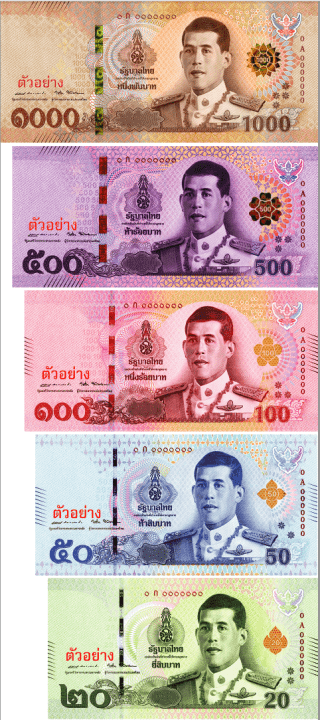The Ultimate Pre-Departure Checklist for Teaching in Thailand
Rome wasn’t built in a day. Similarly, moving across the world to teach takes lots of preparation. It took me months to prepare for teaching abroad since I was applying for my visa, completing my 150-hour TEFL certification, volunteering to teach English to refugees, saying my goodbyes to my family, and knocking out doctor appointments before I left. Preparing to go abroad is a LOT of work.
For this reason, I wanted to share a list of what you can do to prepare for going abroad with my recommendation for how far in advance you should do these things:
Preparing for the culture
- Read up on Thai culture. Once I confirmed my placement, my best friend bought me a book, Thailand: The Essential Guide to Customs and Culture. The book was easy to read and helped me understand the differences between my culture and Thai culture. It covered some of the early history of Thailand, special holidays, indirect communication, and many other things. I highly recommend giving it a read. It could even be a nice companion for your long flight out to Thailand!
- You should give yourself 1 week to read this book since it is small, has pictures, and not too many pages.
- Download essential apps such as Grab and Bolt (both apps help you call Taxis. With Grab you can also order food), Line (this is the WhatsApp of Southeast Asia), and download the Thai Google Translate dictionary to use offline. Don’t forget to download movies for the plane!
- Do this the day before you leave.
- Start a scrapbook. I started one about three months in, and my only regret has been not starting one sooner. In my scrapbook, I write my “weekly highlights” which include pictures (I go to a nearby photo printing shop every two weeks to get them), the weekly temperature in my city, new Thai words or phrases I’ve learned, quotes from my students, and the books and shows I am currently watching/reading. My scrapbook is a notebook of blank white pages for me to fill. Other things to include are your packing list, goals/ reflections, and culture shock experiences.
- Start gathering your materials 1 month before departure so you can document other pre-departure activities or thoughts.


- Learn basic Thai phrases. Learning Thai is pretty difficult since there isn’t a well-developed free app. Learning the basic phrases can take you a long way. I would recommend looking at this short guide to some basic phrases and plan to start learning these words 3-4 days before departure:
- Sawadee Krab (for males) OR Sawadee Ka (for females): Hello
- Khob Khun Krab (for males) OR Khob Khun Ka (for females): Thank you
- Kob kun mak: Thank you very much
- Chai: Yes
- Mai chai: No
- Mai pen rai: You’re welcome/It’s okay
- Hong nam yoo nai?: Where is the bathroom?
- Pet: spicy
- Mai pet: not spicy
Health, Wellness, and Other Appointments
Schedule health or wellness appointments and get updated on your vaccines. Some I would recommend doing in Thailand because it might be much cheaper than in the US, though this will change based on your preference. I felt comfortable in the doctor appointments I have done in Thailand thus far (getting vaccines and going to the dentist), though other Americans have told me they find the quality of care better in the US and prefer these appointments there. It is a personal decision that will depend on how comfortable you would feel with seeking healthcare in a new country.
Below is a list of appointments you may plan to do. I recommend starting these appointments 3 months before your departure (since it takes a few weeks to schedule appointments anyway) to ensure you are not cramming it in the last few weeks at home. An attainable goal would be doing one of these appointments each week.
- General practitioner. Do this before arriving in Thailand. I believe CIEE even asks you to do this.
- Eye doctor. I wish I waited to go to the eye doctor until I arrived in Thailand because my newest contact prescription was very expensive in the US.
- Specialty doctors. This can include dermatologists, allergists, orthodontist, or gynecologists, to give some examples.
- Get up to date with routine vaccines your insurance covers. I got my flu shot and COVID-19 vaccine in the US, and I highly recommend this. These routine vaccines are free and readily available at CVS and Walgreens. Though I am sure they are available here in Thailand, it will likely not be as convenient and easy as in the US.
- Hold off on non-urgent vaccines your insurance does not cover like Japanese Encephalitis, rabies prevention vaccine, and Typhoid. I recommend getting them in Thailand if your insurance does not cover them in the US. Especially for Japanese Encephalitis, I heard many people spent hundreds of dollars to get it in the US when mine in Thailand was 1,900 THB/ $52, which included an initial consultation at the hospital to go over other health information.
- Haircut appointment.
- Dentist Appointment. I went in for a cleaning and had to get a cavity filled when in Thailand. All this together was 2,600 THB/ $72.52. Since this cleaning was cheaper for me in Thailand than in the US, I am happy I did this in Thailand.
- Get your International Driving Permit. Mine cost $20 plus $17 for the passport photos. Technically, you need this to legally drive in Thailand. You can still rent cars and motorbikes without it, but if you get stopped by the police, you will want that on you.
A final note for this section is to call your insurance provider to get early refills on other prescription medicines. I attempted to get an early refill of my prescription, and it took hours of being at the pharmacy with the pharmacists calling the insurance company before I could walk away with my covered early refills to last me in Thailand.
Preparing Financially
- Plan to have about $1,000 in your bank account when you head to Thailand. This should cover your initial expenses for the first month before you receive your first paycheck.
- Bring cash in US dollars. You can exchange this cash for Thai Baht when you get here. Alternatively, if you plan to travel to surrounding countries such as Cambodia or Laos, the USD is accepted as currency in most big cities. You won’t regret having USD. I wish I brought $200 with me.
- You can stop at your local ATM or bank about 2 weeks in advance.

- Bring Thai Baht. A major regret of mine was not coming with Thai Baht. I probably spent over $50 just in ATM fees my first month in Thailand because I did not come prepared with enough Thai baht. My school had us pay for our work permits and visa extension paperwork up front (and we will get a refund after the conclusion of our contract). This totaled to about 5,000 THB, paid in cash (government offices do not accept cards). So be prepared. I wish I had come to Thailand with between 12 and 15,000 Thai baht.
- Call your bank two weeks before departure to ensure you have enough time to receive it before your flight.
- Credit cards are used about 10% of the time in Thailand. Places that accept cards are big shopping centers like Big C or Lotus, malls, 7/11s (when you spend 200 THB or more), and big touristy bars or fancy restaurants. Bus tickets, government buildings, markets, souvenir stands, and most restaurants will not accept cards. Some accommodations also will not accept cards. Keep this in mind when deciding how much cash to take.
- Call your banks to tell them you are going abroad, or go onto your banking app and declare your intention to go abroad through the app.
- You can do this until your arrival in Thailand, though a few days before departure is ideal.
- Set up any financial accounts you want before coming abroad. After I arrived in Thailand, I went through a girl-boss phase where I organized all my finances. This was a nightmare to do outside the US. Contacting US banks with the time difference and paying extra for international calling is a pain. Also, financial institutions will flag applications for new accounts when they see you are in Thailand. Long story short, I had my dad pretend to be me and create my accounts for me in the US while on a phone call. Be smarter than me and avoid the headache. Just spend one day before your departure to open any high-yield savings accounts or retirement accounts.
- Do this 3 weeks before departure to ensure everything is functioning right.
Preparing for Teaching

- Prepare introductory slides for your students. When I first got to my school, I was thrown into teaching. We arrived in my city on the first day of school, had one day of general orientation, and then the next day, went into the classroom for our first day of teaching. On Day 1 of teaching, my students were mainly excited to meet me, so all of my first classes were getting to know my students and my students learning about me. I wish I had prepared a get-to-know-you activity and slides before I came to Thailand so I could focus on adjusting when I got here rather than putting together my first lesson plan. Here an example of the first day of school slides I do with my students plus some other ideas of classroom management I'll introduce gradually throughout the semester.
- I would start this about 3 weeks before departure. Expect this to take three to four hours.
- Prepare a few fun activities for your students about 4 weeks before departure and expect this to take 4-5 hours. The curriculum at my school is pretty strict, so I didn’t need to create a whole curriculum but was instead handed one. Nonetheless, I teach after-school classes where I get to make the curriculum, so having a few fun activities up your sleeve will likely be useful. A couple of my favorite activities I’ve done with my P.6 students have been:
- Who is the Burglar? A conversation game where one student is the burglar, and the rest of the students need to figure out who it is
- Find A Word That Starts With Letter… A team activity where I randomly selected letters, and students had to find words that began with that letter based on categories. I excluded letters O, Q, W, X, and Y since either no or only a couple of countries start with those letters.
- Tongue Twisters
- Fun English Idioms
Packing
A few notes on packing: for a comprehensive guide, my friend and co-worker wrote about what to pack when going to Thailand that I highly recommend: check out Molly C’s Revised Packing List. Thailand has its version of Walmart: Big C and Lotus. At these stores, you can buy most of the same items you might expect to find at home. Therefore, I will only mention a few items that I wish I brought more of:
- Transitional objects. These items are a reminder of home, such as photos, blankets, stuffed animals, or family heirlooms. These objects can help comfort you as you adjust to your new environment and ease the distress of being far from home.
- Cold medicine like DayQuil and NyQuil. I’ve gotten sick a few times already (germs spread like wildfire in school) and struggled immensely to get cold medicine. Most medicine combines allergy with cold relief and is not effective in my experience.
- Pepto Bismol and Ibuprofen.
- Specific American candy. I am a fan of sour candy and have found it difficult to find sour candies such as sour patch kids. They have plenty of sweet candy though!
- Wallet with a coin purse. When spending so much cash, expect to have a bag full of coins when living in Thailand. I’ve found having a wallet with a coin purse beneficial when paying in cash.
When it comes to packing, I gave myself a whole week to do this. I spent the first few days making a comprehensive packing list of what I wanted to bring. Over the week, as I remembered small other things I added it either directly to my bag or added it to my packing list. I officially began packing about 5 days before departure.
Final Thoughts
When preparing to go abroad, there are a million things to do and remember. This is the list of some of the things that were on my to-do list (or I wish were on my to-do list) before I arrived here. My to-do list does not include your to-do list that CIEE will email you about like preparing the documents for your visa. CIEE handles that best, so do as they say!
To sum up what to do to prepare and when to do it, I am including here an example list of planning:
Pre-departure Schedule
| Weeks Before Departure | To-Do |
| 12 | Begin scheduling important appointments |
| 9 | Go to first appointment (example: allergist) |
| 8 | Go to an appointment (example: general practitioner) |
| 7 | Go to an appointment (example: dentist) |
| 6 | Go to an appointment (example: eye doctor) |
| 5 | Go to the an appointment (example: get up to date on vaccines) |
| 4 |
|
| 3 |
|
| 2 |
|
| Last Week Before Departure |
|
Related Posts
10 Things I Wish I Knew Before Starting My TEFL Course
If you’ve been considering the idea of teaching abroad, chances are you’ve come across the acronym “TEFL.” A TEFL (Teaching English as a Foreign Language) course is one of the... keep reading
Being Black in Thailand
Thailand is a culturally rich country. It’s chock-full of people from every corner of the globe. Even still, it’s still easy to question if you’re the type of person that... keep reading
A Comprehensive Guide of Things To Do in Chiang Rai
I’m sure you’ve heard Chiang Rai is only worth a 1-day detour during your stay in Chiang Mai. I’m here to challenge that notion. Thailand’s Chiang Rai province is home... keep reading




